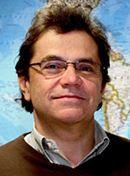The IARC Research Program on Helicobacter Pylori and Gastric Neoplasia

Rolando Herrero obtained his M.D. degree in 1982 from the University of Costa Rica and graduated as a Medical Oncology specialist from the University of Costa Rica in 1987. He started working on cervical cancer epidemiology in collaboration with the National Cancer institute of the United States (NCI) in 1985 as the local Principal Investigator of a multicentric case-control study of risk factors for this disease. He was awarded a post-doctoral fellowship at the Environmental Epidemiology Branch of the NCI from 1988 to 1990. He returned to Costa Rica and became Principal Investigator of a large cohort study investigating the natural history of human papillomavirus (HPV) infection and cervical neoplasia and Coordinator of the National Cervical Cancer Screening Program of the Ministry of Health of Costa Rica. He obtained a Ph.D. in Epidemiology from the Karolinska Institute in 1996, and that year he joined the International Agency for Research on Cancer (IARC) as a senior epidemiologist in the Field and Intervention Studies Section, where he conducted large multicentric studies investigating HPV infection and its association with cervical and oropharyngeal cancer, in addition to a multicentric study investigating the natural history of Helicobacter pylori infection in Latin America. In 2000 he returned to Costa Rica to become the Principal Investigator of an NCI-sponsored community-based clinical trial of an HPV vaccine, which concluded in 2011. In 2010-11 he was also the local Principal Investigator of a multicentric clinical trial of Helicobacter pylori eradication in Latin America. He rejoined IARC in 2011 to become Head of the Prevention and Implementation Group. Dr Herrero’s main research interest is to develop through scientific research appropriate interventions for cancer control, with particular emphasis on vaccination and screening for cervical and other HPV-related cancers and H pylori eradication for stomach cancer prevention. In addition, he is interested in the worldwide implementation of cancer prevention interventions in different socioeconomic and cultural conditions.